Intuition
To teach what intuition means, I bring a tennis ball to work.
Bouncing it around the room, the students sit up a little straighter. Once I make eye contact, the student, without fail, raises his hand in preparation.
No one wants to drop the ball.
My point to the class is that intuition is the mechanism which tells us to get ready to catch the ball without being told so. It is too fast for thought. Our minds don’t have the time to think about what we’re doing.
I’m usually teaching this lesson, if you want to call it that, while we read Emerson’s The American Scholar, a speech he delivered at Harvard one year. Intuition is important to Emerson. He encouraged the students to trust it, told them life’s experience is a better teacher than a book. With more life experience, we sharpen our intuition and create a richer return of wisdom.
This sometimes follows with a written prompt: why does Emerson think this quiz is a waste of time? to see if they got the point. They enjoy that exercise. Often I get a little more of their opinion than Emerson’s on that topic.
You may have come across this word most recently when someone described a piece of technology.
We like to label new software or social media platform as intuitive or not intuitive, depending on its facility of use. An App is intuitive if it is easy to operate. The right button magically appears when you need it. There is no lag time as you navigate the screen.
The technology itself, in this example, is not intuitive, but the developers are. Designers have placed the right gadgets in the right places to appear at the right time.
The software developers I’ve talked to refer to this process as an art, not a science. Intuition is an incredibly difficult thing to manufacture.
It requires proper tuning.
There are frequencies we can access that make instinctive thought a natural process.
It’s easy to understand through the realm of sports, so I use those examples often when teaching. To feel in the zone is to trust your intuition so thoroughly that your effort becomes thoughtless.
This feeling exists in other realms of activity.
For example, the goal of writing, for me, is to remove myself from the writing process. I know I’m writing something good, an intuitive piece, when one thought blends effortlessly with the next. I write nothing that will make the reader pause, stare up from the screen and wonder, what is this about again?
The most intuitive moment I’ve experienced as a writer was finishing the first draft of a novel. In the first chapter, there are endless possibilities: things can happen, characters are a wide-open pallet of personality, the canvas of the scenery is still blank. By the last chapter, your options are limited. The decision of who the characters are is made and the climactic plot is past them. What happens next is magic. In my experience, each sentence was written without any consideration of what should be written. I intuitively knew. It came from a different place entirely, like the novel carved out its own territory in the vast realm of the imaginary. After all that time writing the book, the book finally began writing me.
And this—surrendering to the intuitive needs of the work of art—was the single most rewarding creative experience in my life.
But things get in the way of our intuition.
In fact, before I got clean and sober, I didn’t know intuition was a tool at my disposal to deal with the difficulties of life.
There are certain things that people who suffer from alcoholism and addiction tell themselves to survive that run counter to very basic instinct. When I crash-landed into my stiff-back chair in rehab, drugs and alcohol were not my problem. The counsellors had the wrong man. There is a tremendous amount of self-deception involved in this kind of thinking.
It took me years to see my problem objectively. In fact, I remember around my third year sober realizing that I abused prescription pain medication. You mean, everybody doesn’t horde their medication all day to take one large dose at night and get high? People who suffer from addiction grow so accustomed to their bizarre habits that they call them normal, operating on the assumption that other people must also do these bizarre things.
This can do a number on your faith in yourself.
I had to admit what everyone close to me already knew—the single most humbling experience of my life.
Over time, I came to understand that I knew I had a problem a long time ago. Drugs and alcohol had stopped working for me long before I stopped using them to cope with life. The time spent living in ignorance of my own operating mechanisms dulled my intuition, my ability to rely on my instinct.
Then sobriety happened.
I learned how to say no and to listen to myself.
I began to pray and meditate, a process which sharpens intuition. If I’m presented with a difficult or nerve-racking situation, like a speaking engagement, I pray for guidance and strength. Without fail, and without me altogether, the words come.
The more I trust my intuition, the more adept I become at recognizing when I’m not using it.
Years ago, while sober, I was running a football camp where I got paid to coach young kids. At the last session, I remember a father approaching me with payment for his son in hand. The manager of the facility had already shown me he was paid. When the father handed me the cash, I remember saying, “thank you,” and watching him turn his back.
Intuition, my gut reaction, would have been to not accept the cash in the first place. But then there is that lesser and louder part of my brain, rationalizing the situation—it’s not my fault if he overpaid. Working a program of recovery, it was like I could watch myself operating. A strong voice inside my conscience, that inner-sponsor voice told me to meet him at his car and return the money.
So I did.
The only question afterward was why it took me so long to do the right thing.
Leading an honest life has immense benefits.
I don’t second-guess myself. Only in long-term sobriety can I use the defense, “I would never say that” or “I would never do that.”
The that-doesn’t-sound-like-me defense is a valid one when you follow your intuition in life.
That skill has seen me through many of life’s difficulties with ease.
Eventually, doing the right thing becomes as instinctive as catching a tennis ball. And feeling in the zone becomes just another Monday morning.
 Previous Post
Previous Post Next Post
Next Post
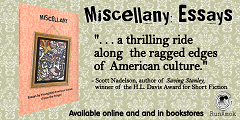
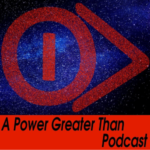

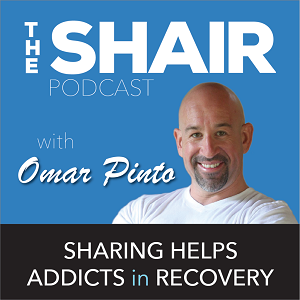
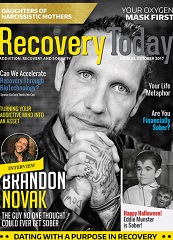
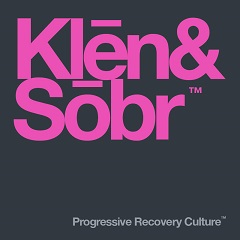



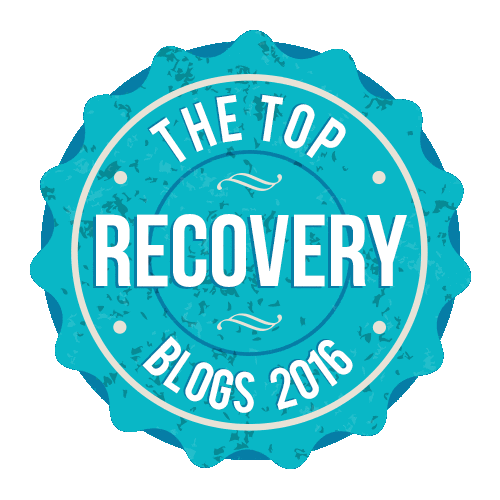
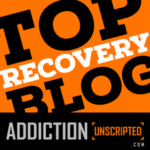
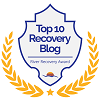
Very Interesting – I like this one Mark!
Appreciate that, Uncle Mark.
Great column. Love the tennis ball idea. It’ll keep people awake too.
It certainly does help with that!
Great piece, thanks!